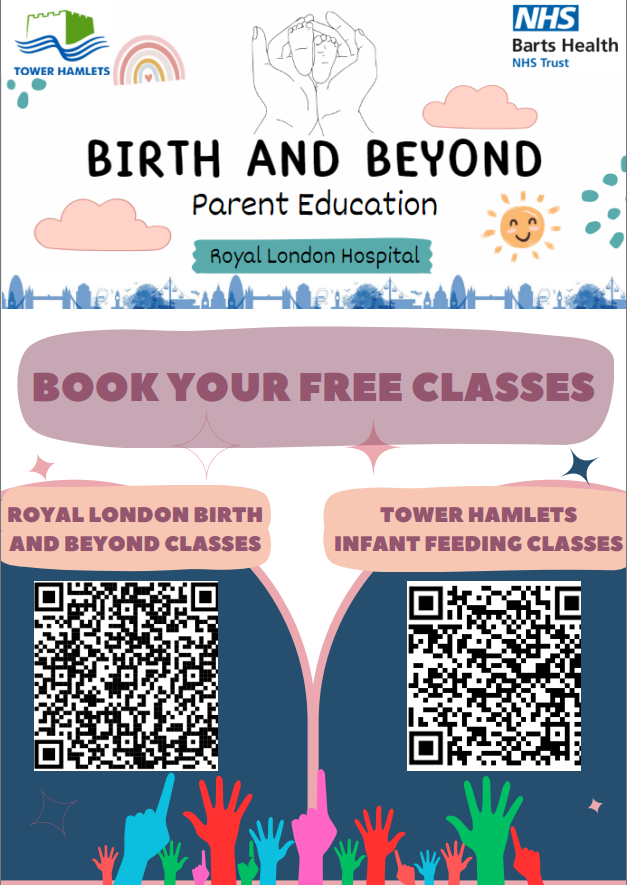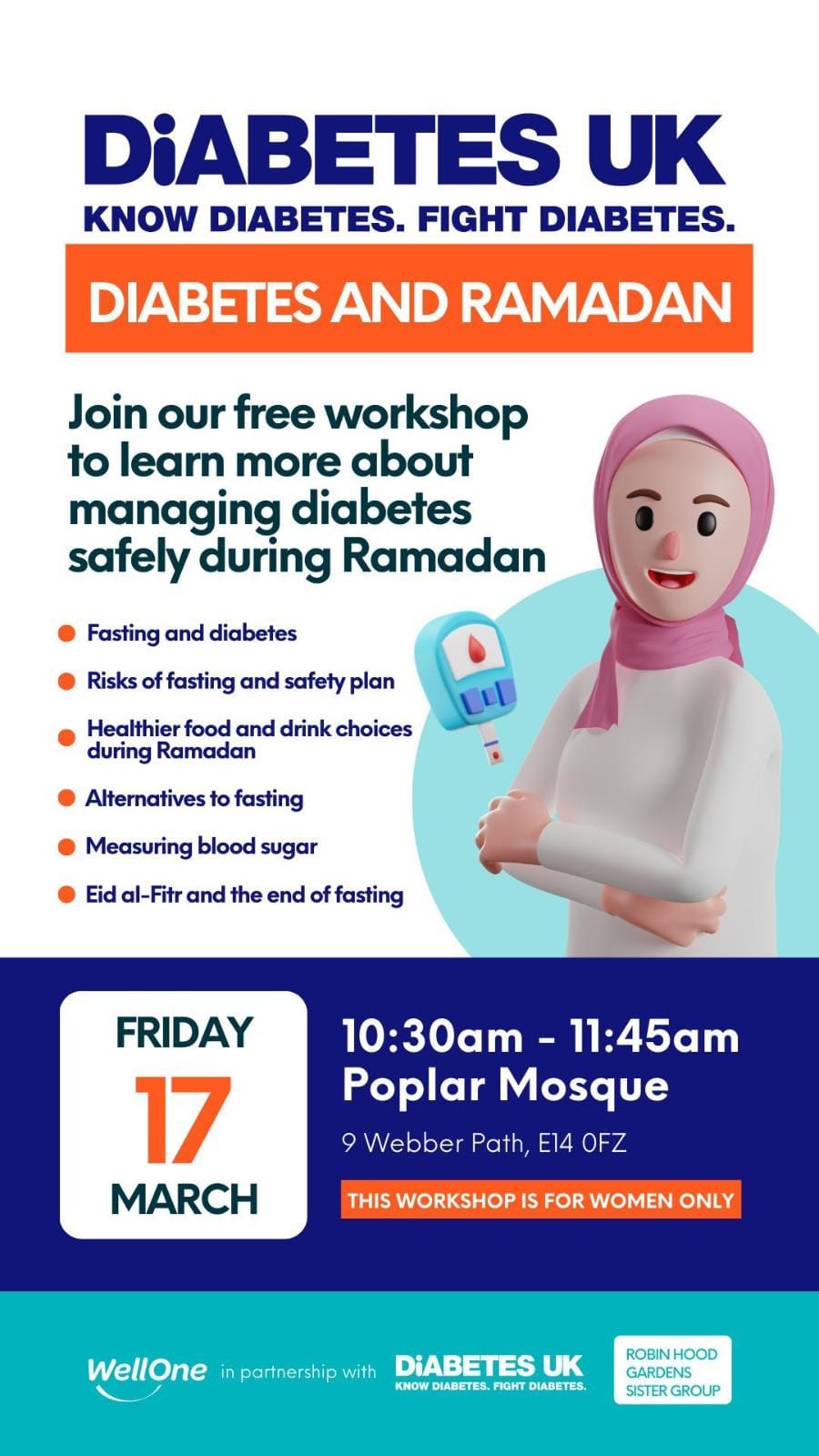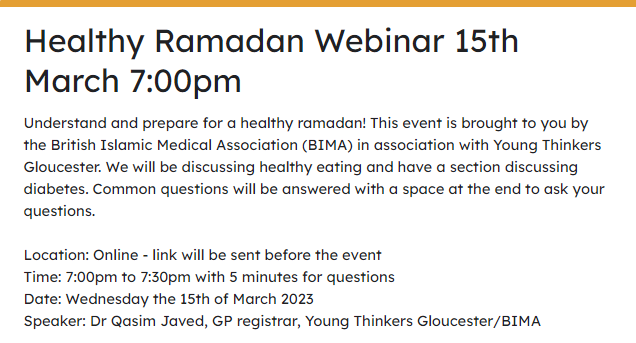
Ramadan Mubarak 2024
Ramadan is soon upon us, and for those who have diabetes and wish to fast we strive to support you so that you can fulfil your fasting safely without compromising your health.
This is just a reminder that it is important to get advice in advance regarding how to manage medications during Ramadan. There is normally Ramadan teaching sessions held at Mile End Hospital, the information however will be general therefore if you have lots of medications or dosset boxes it’s best to seek personal advice from your practice.
Islam gives exemptions from fasting if you have complex medical problems that are compromised by fasting for long periods. Those that are unable to fast during Ramadan can fast during the winter months when the days are short or can donate money for charity instead of fasting (Fidya & Kaffarah).
Main problem during Ramadan is avoiding hypoglycaemia (low sugar levels) and avoiding acute kidney injury due to lack of water intake throught the day.
People with Type 1 diabetes and those with renal failure, pregnant, frail or with other medical conditions where fasting will affect them negatively are advised against fasting.
During Ramadan, medications that are normally taken at breakfast time are usually taken at Iftar and the night medications are usually taken at Sehri time. For those with lunchtime medications, it’s important to ask when to take the medication instead of assuming you can just stop taking it. Due to the short periods when one can eat and drink, some medications need reducing but not all need stopping.
All diabetes medications including insulin which are taken at Iftar should be taken during the meal or just after the meal to prevent hypo happening as one would have been fasting for over 12 hours. This is why it is extremely important to get help from one of the diabetes nurses on dosing in advance, you can do this onlinbe by submitting a request to the admin team to call you back using this link.
It is important to remember to switch back to taking your medications how you normally take them after Ramadan is over.
Hoping you fulfil your wishes for Ramadan 2024
Bonnie Mpofu (Diabetes Specialist Nurse)
Jubilee Street Practice




